ISLAMABAD: As Pakistan play New Zealand in the semifinal of the ICC T20 World Cup 2022 on Wednesday, cricket buffs couldn’t help but notice a few eerie similarities that took place in 1992 when Imran Khan lifted the World Cup for Pakistan and this year’s T20 World Cup as well, when Babar Azam attempts to do the same for the green shirts.
1. Adelaide Oval, where miracles favor Pakistan
South African cricket fans watched in shock and horror as the Proteas lost by 13 runs to minnows Netherlands on Sunday at the Adelaide Oval. The loss helped pave the way for Pakistan to beat Bangladesh and out of nowhere, qualify for the semis.
Oddly enough, on March 1, 1992, Pakistan were staring imminent defeat in the face when they were bowled out for a mere 74 runs by an impressive England bowling unit. Had Pakistan lost the match, Khan’s side would have been knocked out of the World Cup and someone else other than the cricketer-turned-politician would have lifted the 1992 trophy.
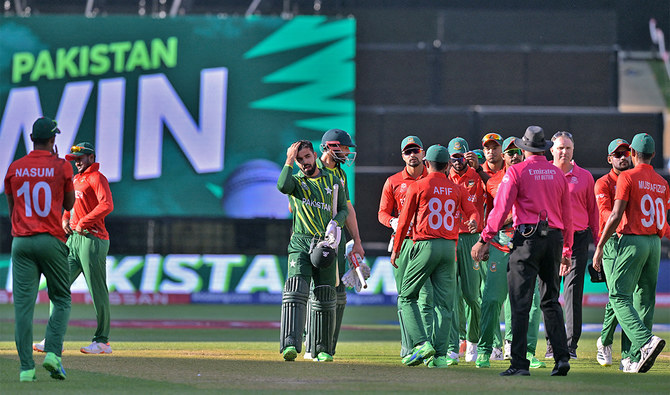
Pakistan's Shan Masood and Shadab Khan (C) walk off the field after their win during the ICC men's Twenty20 World Cup 2022 cricket match between Pakistan and Bangladesh at Adelaide Oval on November 6, 2022 in Adelaide. (AFP)
However, just when England were cruising to victory at 24/1, dark clouds gathered above and heavy rainfall washed away the match. Both sides walked away with a point each and Pakistan advanced oo the next stage of the tournament.
2. Déjà vu: The New Zealand semifinal
Pakistan face New Zealand on Wednesday in a semifinal clash, with both sides vying to book a berth in the final of the tournament. Interestingly enough, Khan’s ‘Cornered Tigers’ also defeated the Kiwis in the first semifinal of the 1992 World Cup over 30 years ago.
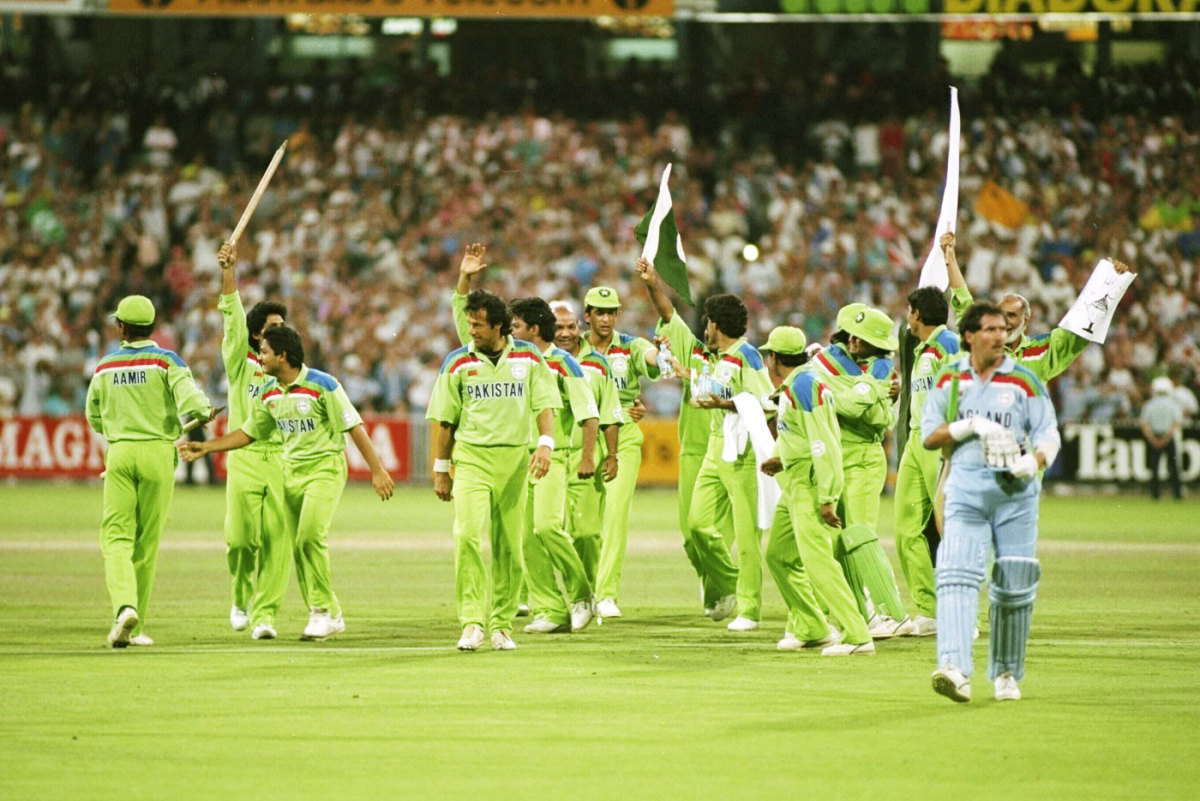
Pakistan cricket team in the captaincy of Imran Khan, celebrates victory against New Zealand in Eden Park, Auckland on March 21, 1992. (Photo courtesy: Social media)
All seemed lost for Pakistan until an out-of-form Inzamam-ul-Haq walked to the crease and smashed a 37-ball 60 runs to see Pakistan through to the final. The rest, as they say, is history.
3. England in the last four
This won’t sit well with Indian fans at all. Pakistan defeated England in the final of the 1992 Cricket World Cup by 22 runs. We’ve discussed Pakistan defeating New Zealand in the first semifinal of the tournament while Graham Gooch’s England beat South Africa to qualify for the final.
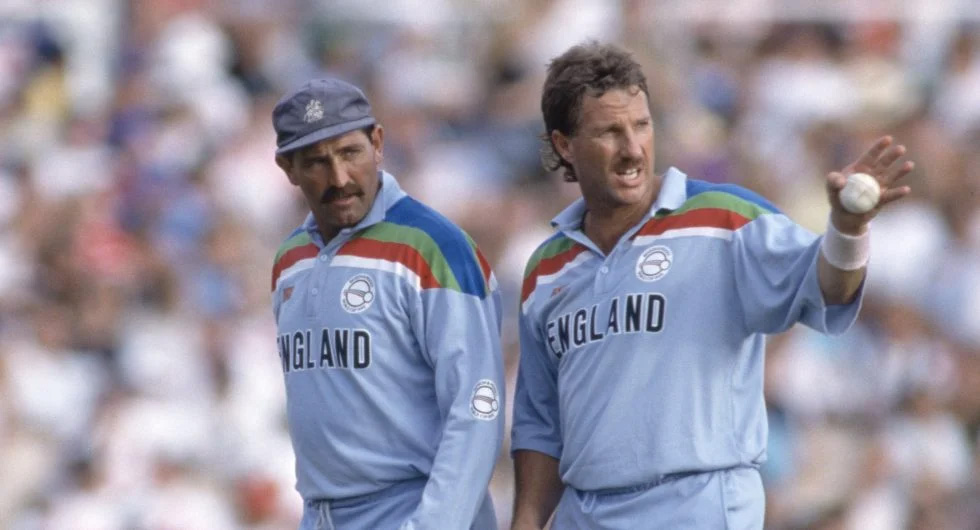
England players Ian Botham and Graham Gooch pictured during World Cup 1992. (Photo courtesy: Social Media)
Bad news, Indian fans. This time around, England have made it to the semifinals. And they face India on Thursday for the World Cup glory.
4. India getting the better of Pakistan in the group stage
Pakistan cricket team lost to Rohit Sharma’s India in the group stage of the tournament at the Melbourne Cricket Ground (MCG) on October 23 in a last-ball thriller.
Again, this won’t sit well with Indian cricket fans. In 1992, Mohammad Azharuddin’s team outperformed Pakistan in the group stage of the tournament, adding to Khan’s troubles earlier on.
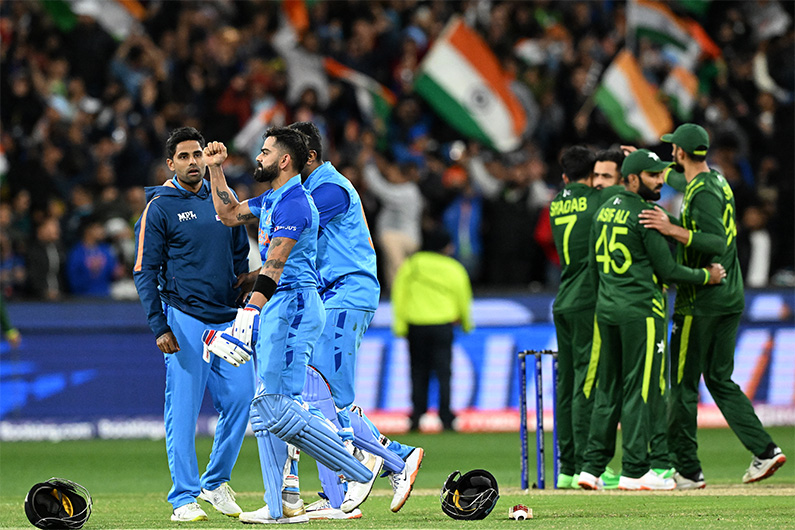
India's Virat Kohli (2nd L) celebrates as Pakistani players react on their loss during the ICC men's Twenty20 World Cup 2022 cricket match between India and Pakistan at Melbourne Cricket Ground (MCG) in Melbourne on October 23, 2022. (AFP)
Khan went on to lift the trophy for Pakistan. Who knew losing to India in the group stage of the World Cup would ultimately, provide relief to Pakistan cricket fans?
5. Disappointing hosts Australia
Australia co-hosted the 1992 World Cup tournament with New Zealand. And in front of the home crowd, Allan Border’s side failed to qualify for the semifinals.
Oddly enough, this time around too, Aaron Finch’s side were knocked out of the cup when England secured a last-over victory over Sri Lanka.

Team Australia observe a minute silence to mark the 20th anniversary of Bali bombing prior to the second cricket match of the Twenty20 series between Australia and England in Canberra on October 12, 2022. (AFP)
Here’s where it gets interesting. Just like 1992, this time around, Australia happen to be the hosts as well.
6. Pakistan, MCG and World Cup finals
In 1992, Khan’s cricket team bested England by 22 runs in the final to lift the trophy for the first time ever. The same venue will once again host the final of this year’s T20 World Cup.
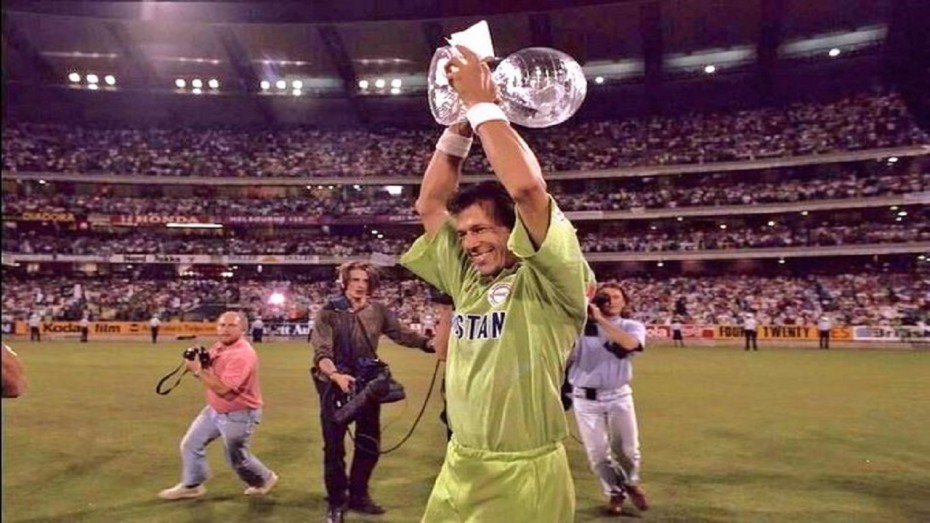
Pakistani captain Imran Khan lifts the trophy after winning World Cup 1992. (Photo courtesy: Social Media)
The question on everyone’s minds is: will Pakistan be the one playing there, come Sunday?












